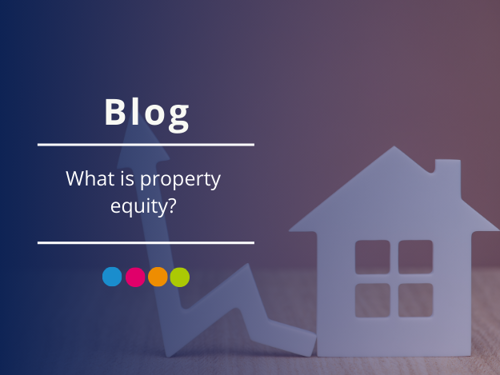
Ever come across the term "equity" and wondered what it actually means? Property equity is an important concept for homeowners, but it can be tricky to understand at first.
In this blog, we’ll explain what it is, how it’s calculated, and how it affects things like buying or selling your property.
Property equity explained
Equity is the part of the property that you truly own. For example, if you make a 20% deposit on a property, you own 20% of it, and that is your equity. As you pay off your mortgage, your equity increases.
To calculate it, simply subtract what you still owe on your mortgage from your property’s current value. This will show you how much you owe and how much equity you’ve built up.
How can you increase the equity in your home?
To build more equity, you can pay off your mortgage faster by making higher monthly payments or paying a lump sum.
Before doing this, check with your mortgage provider, as many have limits on how much extra you can pay each year. Usually, you can overpay by up to 10% of your loan balance annually, but this can vary, so it’s a good idea to review your mortgage terms.
Some providers might charge fees if you go over the allowed limit, so be sure to check your mortgage details to avoid any surprises. These fees are called early repayment charges.
Your equity can also grow if your home’s value increases. Since your loan amount stays the same, the rise in value means you own a larger share of the property. The lender doesn’t benefit from this increase, so your equity grows instead.
What is positive equity?
Positive equity happens when your property is worth more than what you owe on your mortgage. For example, if your property is valued at £500,000 and you have £200,000 left on your mortgage, you have £300,000 in positive equity.
When it comes to getting a secured loan, having positive equity can improve your chances of being approved. Lenders see you as less risky because, if you couldn’t repay the loan and the property was repossessed, they’re more likely to get their money back. This is because the first charge lender wouldn’t take all the proceeds from the sale.
Additionally, if you decide to sell your property, positive equity means you could make a larger profit after paying off any remaining loans, which is another benefit.
What is negative equity?
Negative equity happens when you owe more on your mortgage than your property is worth, usually due to falling property prices. To check if you're in negative equity, you might need to contact your lender, who likely did a valuation when you bought the home.
Being in negative equity can cause issues if you want to remortgage. Lenders base their offers on the value of your property, so if your home is worth less than what you owe, you might not be able to borrow as much, or could face a shortfall. It could also limit your options for remortgaging or refinancing altogether.
If you plan to sell your property, negative equity can make things more difficult. Without savings to cover the gap between your mortgage and the property's value, you could face financial trouble.
One way to reduce the impact of negative equity could be overpaying on your mortgage, which helps you build equity faster. However, be sure to review your mortgage terms first to make sure you are able to do this.
Summary
Understanding property equity is important for managing your mortgage and making smart decisions about your home. Whether you’re building equity by paying off your mortgage or if your property’s value increases, it’s good to know how much you own. On the other hand, negative equity can cause problems, especially if you want to remortgage or sell.
Loans are secured against property. Think carefully before securing other debts against your home. Your home may be repossessed if you do not keep up repayments on a mortgage or any other debt secured on it.




